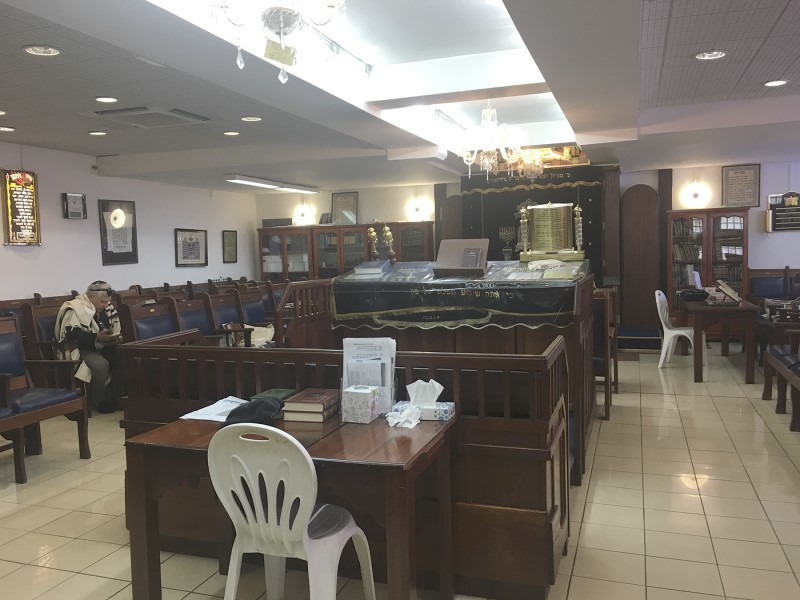The Jews of Martinique
My wife, Cindy, and I have just returned from tropical, beautiful and vibrant Martinique, a French island of some 400,000 inhabitants who live in an eternal summer in the south Caribbean.
Being long-time French professors, Cindy and I wanted to experience the life and culture of a French-speaking locale where there was gorgeous landscape and lush vegetation everywhere, an exciting, welcoming people, history to explore (Josephine was born here and Aimé Césaire was born and lived here) and first-rate food. We wanted to relax and have fun. Succinctly, Martinique has all that, and more!
Officially part of France, Martinique is also home to some 350-400 Jews, and we were determined to meet some of them.
On our second day on the island, we took a 20-minute ferry ride on La Baie de Fort-de-France from Trois-Îlets to the capital and largest city, Fort-de-France. There, near the wharf, we met a taxi driver, Antoine, who, fortuitously, was friendly with Didier Levi, the president of the synagogue.
We were, of course, thrilled to hear this unexpected, fantastic news. Antoine drove us to the synagogue, in the village of Schoelcher, a bustling suburb about 10 minutes north of Fort-de-France. Upon arriving at a multilevel complex, we were warmly greeted by the affable French-speaking Simcha Nemni, who is the wife of Rabbi Nemni, and in charge of the Hebrew school. She told us to walk up a gently inclined slope to the synagogue, where the rabbi would welcome us.
Rabbi Moshe Yehuda Nemni, 37, the father of six children and originally from London, is one of the most charming, gregarious and hospitable individuals one could hope to meet. He speaks French, Yiddish, Hebrew and English, and was sincerely delighted to meet us, and to hear about our work, careers and home.
Nemni said there was an enthusiastic turnout for all services in the synagogue, Chabad-Lubavitch of Martinique. And before I knew it, he took out tefillin and asked if it would be all right to place it on me. When I told him that, regrettably, I had not done this in years, he smiled and asked me to extend my left arm. He patiently placed the leather with the scrolls of parchment, and had me repeat the Hebrew prayers. When that was concluded, he asked if I would like to say a prayer at the ark. When I consented, he opened the curtains and I said a silent prayer at the Torah. It was indeed a most moving experience.
We talked quite a while, and he answered many of our questions. Before leaving, he invited us to a bris that would take place Friday morning in the synagogue, and which a great many Martinique Jews would attend.
Friday arrived, and we once again took the ferry from our hotel, La Pagerie, to Fort-de-France. Antoine was waiting for us at the wharf, and drove us swiftly to the synagogue in Schoelcher.
In the synagogue, the men greeted each other with two kisses, à la française, and congregated in the main sanctuary, while the women were in a rather small room at the back. I was welcomed warmly and enthusiastically.
Just before the bris began, there was a lot of singing, and most of the men gathered near the bimah, where the father was seated and holding the baby.
After the ceremony, there was a lot of jostling, hugging and socializing before we all descended into the main social hall/community center, where a convivial reception took place. All kinds of food were served, from breads and meats to eggs and lox, and the portions were copious.
We sat with a group of extremely well-coiffed, well-educated and winsome women who could have been from Paris or New York City; however, most have lived in Martinique for years. These ladies and other members of the congregation were originally from France and North African nations such as Morocco and Algeria. Others were born on the island. They all relish living in Martinique. Several said, “It’s a relaxed way of life here, and we enjoy the warm climate.”
The rabbi’s wife, along with two of their daughters, asked us wholeheartedly to enjoy Shabbat dinner with their family - but, alas, we could not.
Most of the Martinique Jews live in and around Schoelcher, and thrive and prosper there. There is no anti-Semitism in Martinique, and all concurred that Jews, less than 1 percent of the population, live on the island in peace, calm and tranquility.
Anyone who travels to Martinique – only a 4 1/2-hour flight from Logan Airport – can expect an unforgettable experience, especially if they meet the extremely friendly and warm-hearted Jews of the island.
MEL YOKEN, Ph.D., is chancellor professor emeritus of French language and literature at the University of Massachusetts-Dartmouth.








